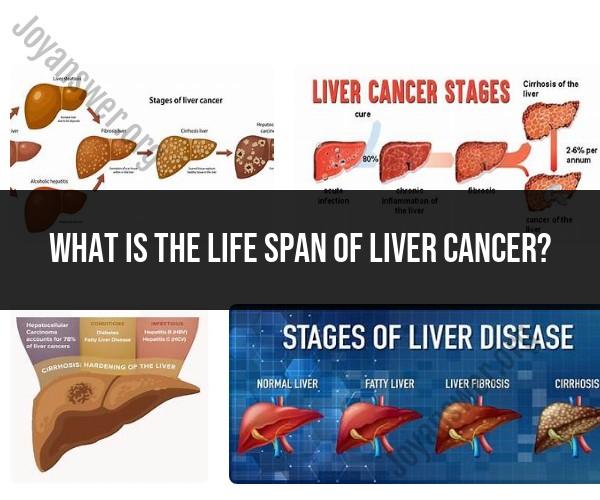What is the life span of liver cancer?
The life span of an individual diagnosed with liver cancer, also known as hepatocellular carcinoma (HCC), can vary significantly based on several factors. Liver cancer is a serious disease, and prognosis depends on the stage at which it is diagnosed, the overall health of the patient, the available treatment options, and the response to treatment. Here are some key points to consider regarding the life span and prognosis of liver cancer:
Stage of Liver Cancer: The stage at which liver cancer is diagnosed is a crucial factor in determining prognosis. Liver cancer is typically staged from 0 to IV, with stage 0 being the earliest and stage IV being the most advanced. The earlier the stage at diagnosis, the better the prognosis generally is.
Treatment Options: Treatment options for liver cancer may include surgery, liver transplant, ablation therapy, radiation therapy, and targeted therapies. The choice of treatment depends on factors such as the stage of cancer, the patient's overall health, and the availability of transplantable organs.
Cirrhosis: Many cases of liver cancer are associated with underlying liver disease, such as cirrhosis. The presence of cirrhosis can impact prognosis, as it may limit treatment options and increase the risk of complications.
Response to Treatment: How well a patient responds to treatment can significantly affect their life span. Some patients may respond well to treatment and achieve remission, while others may experience disease progression despite therapy.
Overall Health: The patient's overall health and the presence of other medical conditions can also influence their life span. Patients with multiple health issues may have a more challenging time undergoing aggressive treatments and may have a poorer prognosis.
Survival Rates: Survival rates for liver cancer can vary widely. According to the American Cancer Society, the 5-year survival rate for liver cancer is relatively low, with a significant difference between early-stage and advanced-stage cases. Early-stage liver cancer has a higher chance of successful treatment and a more favorable prognosis.
Regular Follow-Up: Regular follow-up care and monitoring are essential for patients with liver cancer, even after treatment. This helps detect any recurrence or complications early, which can impact prognosis and treatment options.
It's important to note that each case of liver cancer is unique, and survival outcomes can differ from person to person. Prognosis is a complex matter, and the information provided here is a general overview. Patients and their healthcare providers should discuss the specific details of their diagnosis, treatment plan, and prognosis.
If you or someone you know has been diagnosed with liver cancer, it's crucial to consult with a medical oncologist or hepatologist who can provide personalized information and guidance based on the individual's medical history and current condition. Early detection, appropriate treatment, and a supportive care team can all play a role in improving prognosis and quality of life for individuals with liver cancer.













